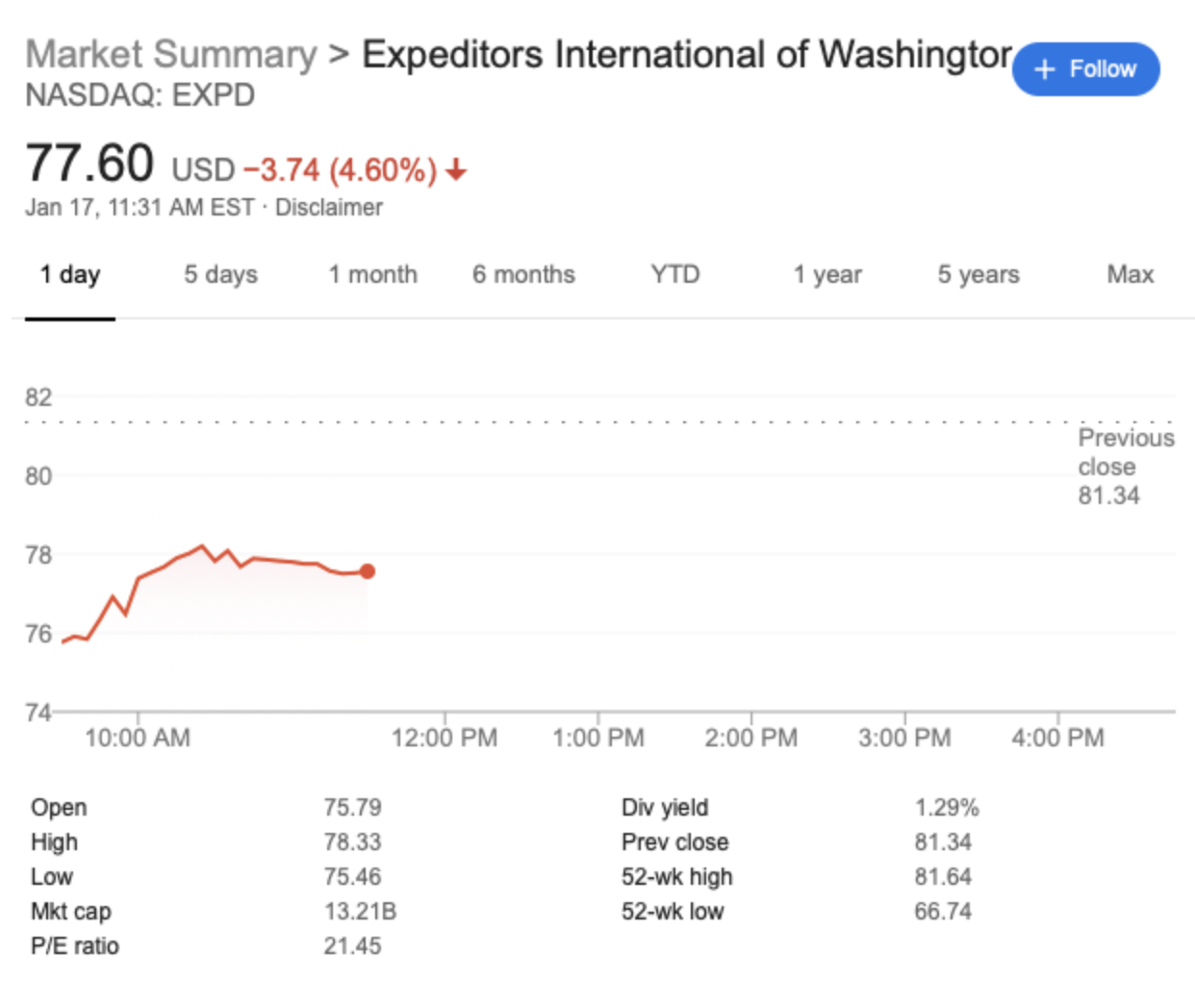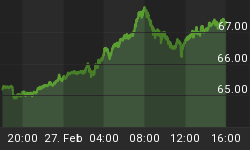The trade war is far from over, and for shipping companies reporting on 2019 full-year results, the real battle with shares has just begun. Ships are sinking, but Chinese economic growth data offers more than one interpretation. Shares in global shipping and logistics provider Expeditors International (NASDAQ:EXPD) had shed over 4.5% by 12pmEST Friday on news that its revenue and earnings would be “below prior-year results and analyst consensus estimates”.

(Click to enlarge)
Likewise, CSX railroad stock was trading down Friday, after reporting a 7% decline in freight hauled in Q4.
Trucking company JB Hunt Transport Services Inc. also failed to meet expectations, with shares losing over 4% Friday:
And it’s not clear that the Phase One trade deal signed Wednesday between the U.S. and China will alleviate any of the pain for these shippers, even if it creates some new demand.
According to FreightWaves,com, the uncertainty of future trade relations outweighs the demand gains for shipping stocks.
In terms of shipping demand gains, the Phase One deal commits Beijing to buying nearly $78 billion in U.S. manufactured goods over the next two years, plus $32 billion in agricultural products and over $52 billion in energy products.
That should be a boon for shippers, but there’s a catch.
Frode Mørkedal, an analyst at Clarksons Platou Securities, tells Benzinga, however, that the Phase One deal isn’t necessarily creating new volumes for shippers, it’s just redirecting volumes.
"Although China's import demand could therefore increase, it is unlikely to expand by $200 billion [total commitments under the Phase One deal]. Increased volumes from the U.S. would likely lead to reductions from other countries. Hence, we see the main positive impact being potentially increased distances,” Benzinga quoted Mørkedal as saying.
In the meantime, the Phase One deal doesn’t mean the trade war is over. Original tariffs are still in place.
Related: Here We Go Again: Another Giant Telecoms Mega-Merger
Indeed, as Business Insider quoted an influential social media blog connected to a state-run Chinese newspaper as writing: “We must bear in mind that the trade war is not over yet – the US hasn't revoked all its tariffs on China and China is still implementing its retaliatory measures. There are still many uncertainties down the road."
That leaves us with Chinese economic data, which is either a doom-and-gloom story representing slowing growth near a 30-year low, or--a revival.
Government data released early Friday showed China’s economy having grown by 6.1% in 2019--down from 6.6% in 2018. That’s a 29-year low, and it makes for good headlines.
But the flip side of this record is what is now buoying European and Asian markets.
As the Financial Times reports, U.S. stocks opened at a record high Friday, and Europe was soaring as well on the Chinese data. This interpretation shows a fairly healthy Chinese economy that experienced an uptick in growth in December that quashed a potential Q4 slowdown.
“The monthly data indicate that momentum improved heading into 2020,” Julian Evans-Pritchard, senior china economist at Capital Economics, told FT.
The market has largely spoken out over-optimism about China’s economic resilience.
By Tom Kool for Oilprice.com
















